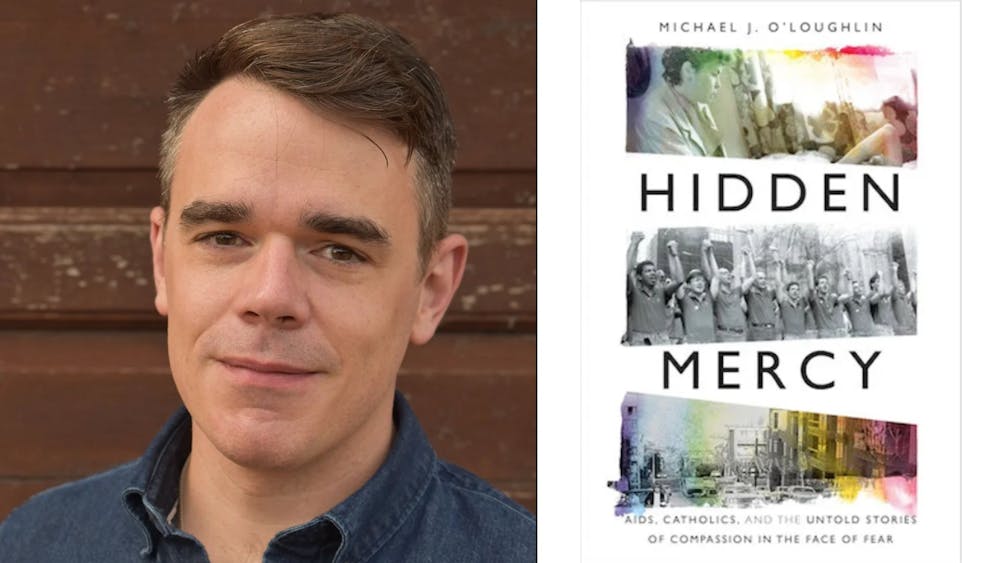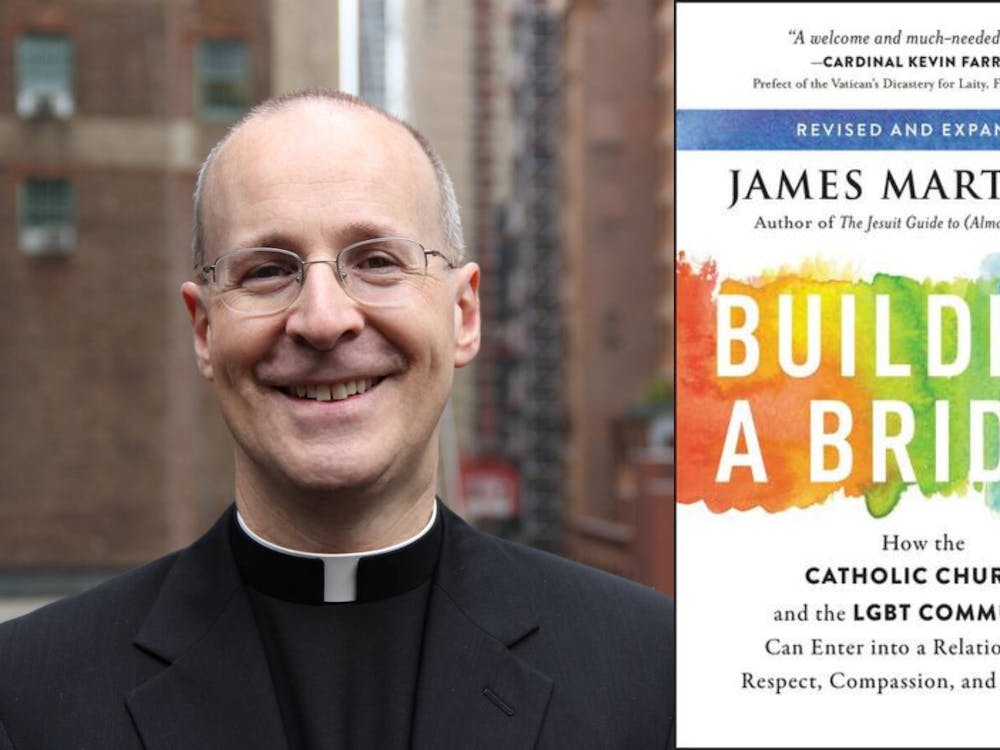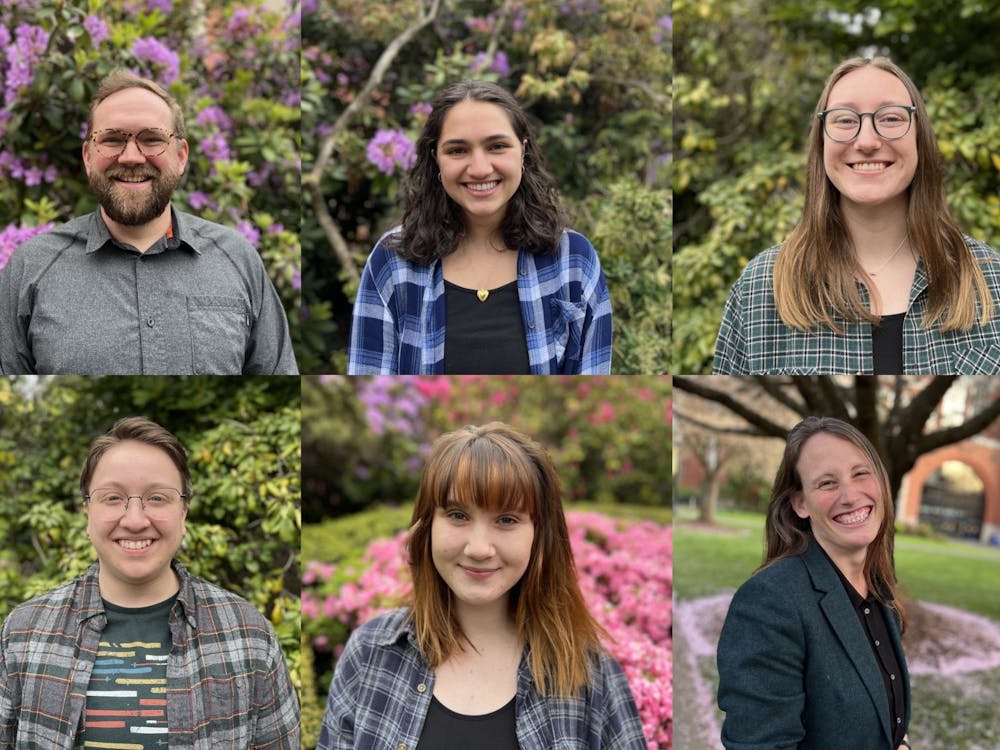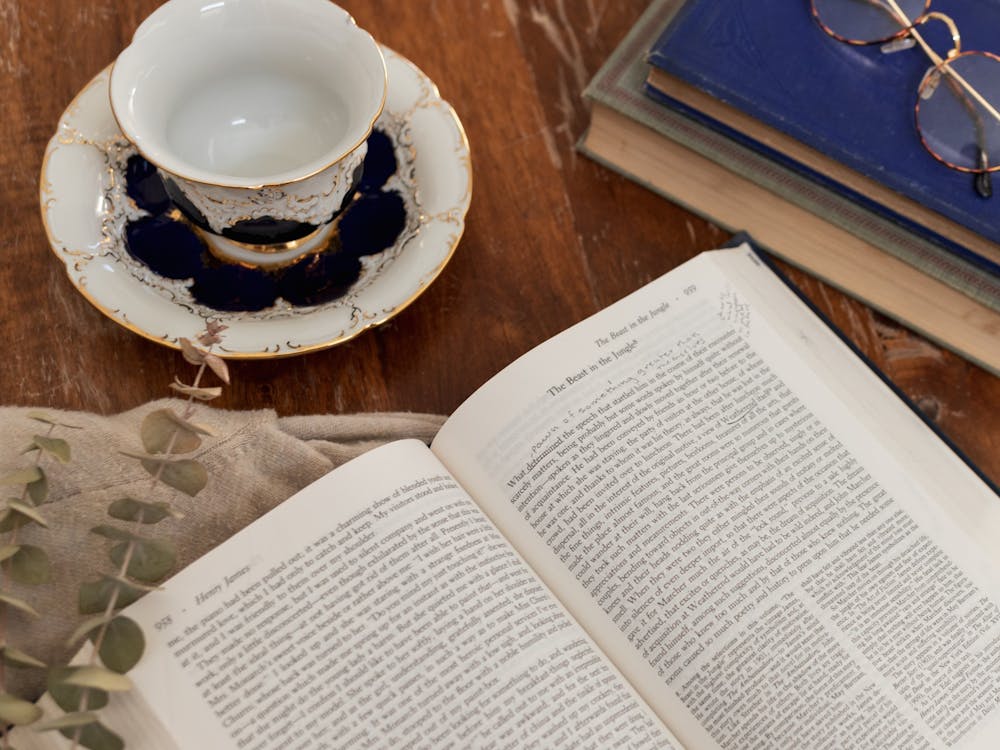This article was updated after inclement weather has closed down campus for two days. This talk will not be held in person but will be recorded and made available at a later date.
Drawn to the question of how religion and faith take shape in the public sphere, award-winning journalist Michael O’Loughlin, seeks a deeper understanding of responses from members of the catholic church during the HIV and AIDS crisis of the 80s and 90s in his book “Hidden Mercy”.
O’Loughlin hopes to carry on the stories of those who were neglected during such a tragic time for the LGBTQ+ community that were never taught in history classes. He is currently writing for America Media and has written for The Boston Globe, The Atlantic, The Washington Post, and more. On top of writing, O’Loughlin also hosts the podcast “Plague: Untold Stories of AIDS and the Catholic Church.”
He is eager to share the stories and experiences as part of the Author Talk series. The talk will be recorded and made available as a podcast at a later date. This event is co-sponsored by the Garaventa Center along with the Department of English and is free and open to the public.
In a phone interview with The Beacon, O’Loughlin discussed his experience as a writer, the importance of the stories in “Hidden Mercy” and what he hopes we can learn from them.
The Beacon:
What will be the focus of your talk and how are you going to integrate material from your book, “Hidden Mercy,” into the talk?
O’Loughlin:
I’m looking forward to it. It's gonna be a conversation. Not a lecture, but very much a dialogue where we'll be exploring some of the themes in the book, exploring the history of HIV and AIDS in the United States, how the Catholic Church responded to it, what lessons are there from that time for LGBT communities and their friends and families today.
Then sort of looking at what's happening with the church today, like what have we learned from that time in history? What are current challenges where we can draw lessons from that time and apply them to today's challenges?
It’s very much an opportunity for people to ask questions, share their own stories, and really engage in dialogue about what can be a difficult topic for many people today.
The Beacon:
Your book came out in 2021, so relatively recently. I am wondering, how does it feel to be able to meet and interact with people and to talk about this book in a public setting now?
O’Loughlin:
Early on, there were still moments of discomfort. I write in the book that I wasn't always comfortable identifying myself as a gay person in the Catholic Church because I still held on to some of those questions I had about whether I really had a place. But, a year later, having done 55 of these book events now I've become quite comfortable with it.
I really enjoy the opportunity to chat with others who maybe are in a different place in that struggle, to sort of hear what their story has been like and share some common experiences to help each other out.
One of my favorite parts is chatting with people after the event ends. Usually, a handful of people stick around, want to say hi and I get to know them a little bit, and hear how the stories impacted them. So I think the most rewarding part has been taking the stories of people I've gotten to know over the years through interviews, people whose lives are presented in the book, and then sharing them with younger people who never ever would have come across those stories and seeing how they've impacted their lives in a real way.
Sometimes, some of the best events include both people who are a couple decades older than me, who lived through that time and have their own experiences, and also students who certainly don't remember that time firsthand. Just seeing how different their lives are and how there are still common elements where they can connect with one another. So I'm not sure what the crowd will be at Portland, but I'm hoping that there's some kind of back and forth between different generations where there can be some learning and some sharing experiences that are edifying to both groups.
The Beacon:
I noticed that you've been doing a lot of book talks at colleges. And I'm curious, why did you choose to give this talk to college students and why do you think it's important for college students to hear about the stories in “Hidden Mercy”?
O’Loughlin:
I think it's important for college students to learn about the history of LGBT people in the Catholic Church, because it can provide a lifeline when people are struggling to reconcile their faith with their identity, whether it be sexual orientation, gender identity or something else.
For me, I didn't know this history until I wrote the book. And once I learned it through these interviews and archival research, I felt less alone in my own search for what it means to be a member of the LGBT community and a member of the Catholic Church and I hope other people will have a similar experience once they learn these stories.
The Beacon:
You spoke about reconciling your own experience with faith and sexuality. I'm wondering how this has changed for you throughout your life and in writing this book.
O’Loughlin:
I had really struggled with remaining part of the Catholic Church because it sometimes did feel very unwelcoming, whether it was statements from church leaders, or my own interpretation of church teaching or scripture. It sometimes felt like there just wasn't room for a gay person to be part of the institution. That had been upsetting to me because I really value my faith and it was a big part of my life, and I felt like I was being forced to choose between two parts of my identity and it felt upsetting and unfair.
By writing the book and learning how other LGBT Catholics, priests and sisters, and how they stood by the community in a very difficult time in history, made me realize that there's been a generations-long struggle to make the church more welcoming to the LGBT community.
It kind of gave me strength and fortitude and consolation that there was a possibility to live with integrity in the institution. So for me, it's been a journey of losing that sense of isolation and connecting through history to a much wider community that has been on the side of justice for many, many years.
The Beacon:
What would you say is the biggest thing you've learned about the Catholic Church, through your research and historical analysis of the HIV and AIDS crisis. Was there anything that surprised you about it or interesting things that came up when you're doing the research?
O’Loughlin:
A surprise was the vibrancy and the breadth of how large the movement was when it came to the Catholic pastoral response to people with HIV and AIDS in the 80s and 90s.
I had this superficial understanding that there was the activist community on one side, and then Catholic leaders on the other side, and they were just constantly battling when it came to HIV and AIDS. And it is true to some extent, but what I failed to appreciate was that alongside those confrontations there were many, many LGBT Catholics who were fighting for their lives while also fighting for their faith as they were being kicked out of parishes. There were Catholic Sisters running hospitals that treated large populations of people with HIV and AIDS. There were many Catholic priests who were providing pastoral care to gay men dying from AIDS complications and their partners.
There was this very vibrant community, often underground, doing the kind of work that society simply didn't want to do. Standing with the community in need. So, it really complicated my understanding of history at that time, in a way that showed me the truth was much more vibrant and vital than I appreciated.
It also told me that if there's any spaces in the Catholic Church today that are friendly to the LGBT community, whether it's the parish I go to, other parishes I visited around the country, Catholic universities, Catholic schools, any Catholic space that is welcoming to the LGBT community, is not an accident.
It took generations and years and fighting to keep that space friendly and welcoming to the community. This was also a reminder that it's a continual battle that LGBT Catholics and their friends, families and allies have to fight to make those spaces stay a place where the LGBT community feels welcome.
The Beacon:
That's super interesting. I never really thought about the tensions that arose during the AIDS crisis with the Catholic church and work for social justice issues in that time. It's really interesting to hear you talking about this and how those stories that may have slipped away, how you recover them, to look back at history in a new light and see the stories that may not have been shown.
O’Loughlin:
I know, it's something that we haven't been taught in schools. We certainly weren't taught this history in religious ed, in parishes, and I think there's still a bit of a taboo nature about it.
Part of it is because of the Church's teaching on homosexuality, but I think part of it is because people look back at that time and are ashamed of how society acted, how they turned their back to the gay community during this very difficult time. So for me, it's been a personal quest to capture these stories before it's too late because so many of the people who were doing this important ministry at the time or this activism at the time, are getting older and passing away and the stories have never been captured.
So I do feel like we're in this race against the clock to capture these stories before they are lost completely to time.
The Beacon:
What draws you to the intersection of faith and social issues? I noticed you write for America Magazine as well, and a lot of your stories cover faith based questions of social issues and that kind of intersection. What makes you passionate about that area of writing?
O’Loughlin:
For me, I think the church is most interesting when we're looking at how people live their faith in the public square. So, whether it's Catholics who are involved in politics, nonprofit organizations, social justice movements, to see how the gospel inspires people to act in very different ways.
It might prompt some people to join conservative causes because they focus on the church's traditional teachings around marriage or sexuality, or prompt incredibly progressive responses — people who, in many ways, take vows of poverty and live in Catholic worker houses, sheltering migrants from authorities.
It's one faith that prompts people to respond to contemporary challenges in very different ways. I think that's an underappreciated element of how the press covers society. It's a motivation that compels strong responses in people in very different ways. And if we fail to understand the religious motivations for those responses, we won't understand fully what's actually happening in society.
The Beacon:
Yeah, I feel like religious responses are really complex. Like you said, individuals interpret things differently and respond in very different ways, even though they may be coming from the same faith community.
To see those differences and understand more deeply where they come from, results in a better conception of religion in general. I feel like a lot of times it can be one sided. You only see one type of response.
O’Loughlin:
Yeah, I think there's sort of a bias in the mainstream reporting to view religious people as being conservative, and there certainly is a large cohort of US Christians who are politically conservative. But that risks ignoring a large segment of Christianity, or the Catholic Church in my case and what I cover, of people who respond in different ways and have different political goals and social justice ideals. So I think capturing that story is essential to understanding our political situation today.
The Beacon:
How did you find your passion for journalism and writing in general?
O’Loughlin:
Probably by accident.
There was no grand plan to become a journalist. I've always enjoyed writing. I've worked on newspapers, in high school and college and grad school. I didn't know that I would be able to combine my interests in religion with my love of writing. So I began an internship at America Magazine, where I work now, back in 2009 as a grad student, and then was lucky to do a lot of freelancing.
I was hired by the Boston Globe and worked there for a couple of years covering the Catholic Church and then started back up in America in 2016. I've been really fortunate that there was this creative outlet where I could bring my passion for religion with my love of writing and asking questions. I kind of stumbled into it, but it's worked out over the past several years.
O’Loughlin values the stories people have shared with him over the years and hopes this talk can be an opportunity for everyone to share and learn from each other.
Maria Wanzek is a reporter for The Beacon. She can be reached at wanzek22@up.edu.








